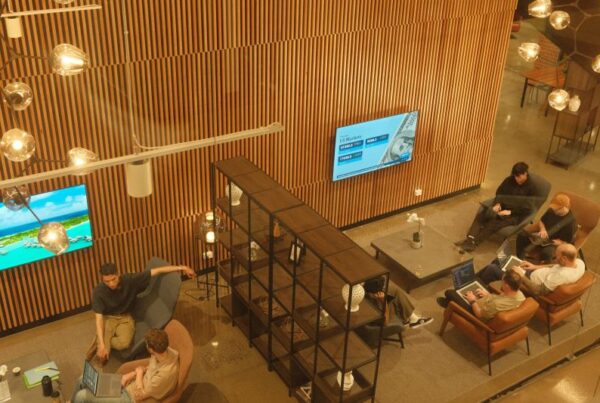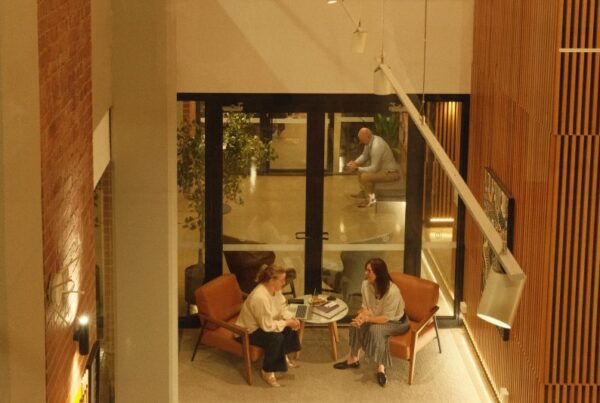
The end of the financial year can be a stressful time for small businesses (pun fully intended). Even after July has been and gone, there is a range of obligations that you’ll need to meet with the Australian Tax Office (ATO). There’s also a raft of deductions and offsets that can help reduce your tax bill. So where do you even get started?
Fundamentally, the process changes every year. These shifts have also predominantly been driven by the growing number of small businesses that operate from home offices or shared office spaces – like those at United Co.
The ATO has also rolled out initiatives that can help organizations grow by claiming assets like vehicles and equipment. So, here is your ultimate guide to dealing with tax time – with all rules, regulations, and advice.
The main things that small business owners can claim on tax
Before attempting to tackle your tax return, it is best to plan by making a list of all the things that you can claim. Use this list to itemize your expenses. This means noting down claims for both working expenses, which vary depending on your industry, and capital assets (assets that have a life of over one year and are subject to depreciation).
1. Working Expenses
These are effectively any operating expenses you incur, which can include paying for advertising, wages, work-related travel expenses, and repairs and maintenance. It is always wise to check with the ATO to find out which expenses you can claim for your industry. Entertainment expenses are not considered to be working expenses.
2. Capital Expenses
This is all of your heavy infrastructure, furniture, and vehicle expenses. Assets under $20,000 can be claimed in a single year, while assets over $20,000 are claimed over multiple years. These assets can be instantly written off, though, as we will explain next.
Take advantage of the $30,000 instant asset write-off
This popular government incentive means you can claim assets up to $30,000 that you have purchased and used in the last financial year.
This was previously set at $25,000 but was raised this year by the Federal Government. Medium to large businesses can also tap into the scheme, with the annual turnover cap increased from $10 million to $50 million.
As long as your small business is registered with the ATO, you can access this scheme to buy large items. This includes vehicles, furniture, and building materials to help your business grow.
Read More About Coworking Spaces Tax Deductible in Australia
Can you claim home office expenses?
There was a time, a very recent time when home office expenses were not deductible for small business owners. The times are changing, though, and the ATO recognizes that more and more people are working remotely and from their homes in 2019.
You can claim home office expenses if it is the principal place of business (read: you don’t have an external office) and a dedicated portion of your home has been set aside to run your business.
What you can claim on home office expenses:
- Occupancy expenses: Including a portion of the rent, mortgage payments, interest, rates, and in some cases, insurance.
- Your office equipment: All of your technology, furniture, and fit-outs are tax-deductible.
- Amenities: Your phone line, mobile phone bill, internet, electricity, and heating and cooling are tax-deductible.
- Maintenance: Cleaning and repairs can also be deducted.
This means you can also claim expenses incurred by using shared office spaces, including your leasing fees and any other costs involved.
What can I claim on tax?
Find yourself asking this question? Here is your guide to the primary things your small business can claim on tax:
- Advertising and sponsorship
- Unpaid or bad debts (as long as they were in your assessable income for the previous financial year)
- Phone expenses
- Studying for education, technical or professional qualifications
- Transport and freight expenses
- Maintenance and repairs on your business property
- Amenities like electricity
- Work clothing and outdoor protective equipment
- Legal fees
- Costs associated with completing your tax return
- Bank fees and charges
- Public relations and marketing
- Costs related to your business premises like rates, water, rent, or lease expenses – including meeting room hire
- Website building, fees, and maintenance
- Union fees
- Business car use and maintenance
- Travel for business purposes
- Parking expenses
- Losses from a previous year
- Insurance
- Wages, superannuation, and any other payments to employees
- Fringe benefits tax paid to employees
- Subscriptions
- Travel expenses for relocating employees
For a bit of fun (and also to save you money), here are some things you can claim on tax that you might not have thought about:
- Gym memberships: Do you work in a physical industry, such as a trade? Then keeping those guns in working order is part of the job, so hitting the gym is tax-deductible.
- Your dog: If you have a dog that is being used for guard purposes, all of the food, vet, and other associated costs are deductible.
- Tenders: You can claim the costs associated with tendering for jobs – even if they are unsuccessful.
- Interest: If you have to borrow money to meet your tax, wages, or superannuation commitments, you can claim the interest accrued.


Changes from the ATO to take into consideration
Each financial year, the ATO brings in changes to tax laws that small business owners need to be aware of. Here are the latest ATO changes:
- Instant asset write-off extension: This scheme has been extended until June 30, 2024.
- Minimum wage increase: From July 1, 2024, the minimum wage in Australia has risen by five percent to $24.39 per hour. You can find out all of the current award rates on the Fair Work Ombudsman’s website to ensure that you are paying your employees correctly.
- Cash-in-hand crackdown: The ATO is coming down hard on cash-in-hand payments as they don’t comply with PAYG requirements. There are many instances of contractors being paid in cash without an ABN.
- Taxable payments reporting system extension: More businesses will need to report payments to contractors under the TPRS. This was initially rolled out for the building and construction industries, then the cleaning and courier industries, and now includes road freight, IT, security, investigation, or surveillance service industries.
- Primary producers: You can now claim the full cost of fodder storage if the expense was incurred after August 19, 2018, or if it was purchased before that date but not installed and used until afterward. Fencing and water facilities are also now deductible.
- Company tax rate eligibility: Your company must now be a base rate entity to be eligible for the 27.5 percent company tax rate. That means you must have a turnover of less than $50 million annually and 80 percent of your assessable income is base rate entity passive income (like interest, dividends, rent, royalties, and net capital gain).
Read More About Maximize Your Growth Opportunities with Flexible Business Office Space
Tax-free thresholds: Know which rate you are on
This is critical to know your tax exposure and thresholds. This differs from industry to industry, and a complete guide from the ATO is available here.
Reduce your bill with a tax offset
You can slash your annual tax bill each year by up to $1000 if you are eligible for the small business tax offset.
The amount you are eligible for depends on the tax paid, whether you are a sole trader or a company, non-commercial losses, and a range of other factors.
To determine your eligibility and for information on how to apply for the small business tax offset, go to the ATO’s guide here.
Understanding single-touch payroll
Single-touch payroll became mandatory for all businesses and employers as of February 12, 2019.
This is an ATO compliance requirement that means you have to supply employee payroll information including salary, wages, PAYG withholding, and superannuation at the same time as employees are paid.
What this means is that businesses will likely have to change their payment platforms to accommodate single-touch payroll and meet their compliance obligations with the ATO.
Large employers with 20 or more staff should already be using single-touch payroll. Smaller employers (19 or fewer employees) need to become single-touch payroll compliant before September 30, 2019.
Most reputable payroll, accounting, and business management software companies have incorporated STP into their systems already, which should make the changeover seamless.
While this may sound like common sense, a recent study by Xero revealed that over 50 percent of all small businesses didn’t know what STP was.
For more information on STP and your obligations, go to the official ATO page here.
What are the main issues facing small businesses at tax time?
The ATO has outlined three major issues that can lead to heartache for small businesses at the end of the financial year:
- Failing to report all income
- Not having the required records to prove small business claims and;
- Claiming personal expenses as business expenses.
In conclusion, navigating the end of the financial year for small businesses can be daunting. With obligations to the Australian Tax Office and a myriad of deductions and offsets to consider, it’s easy to feel overwhelmed. However, by understanding what you can claim and taking advantage of initiatives like the $30,000 instant asset write-off, you can effectively manage your tax obligations. Remember, as long you follow those three simple rules, there shouldn’t be any issues at tax time. Stay in the green!
Did you know you can claim your coworking space at United Co. in Melbourne on your tax return? Book your free tour now.


